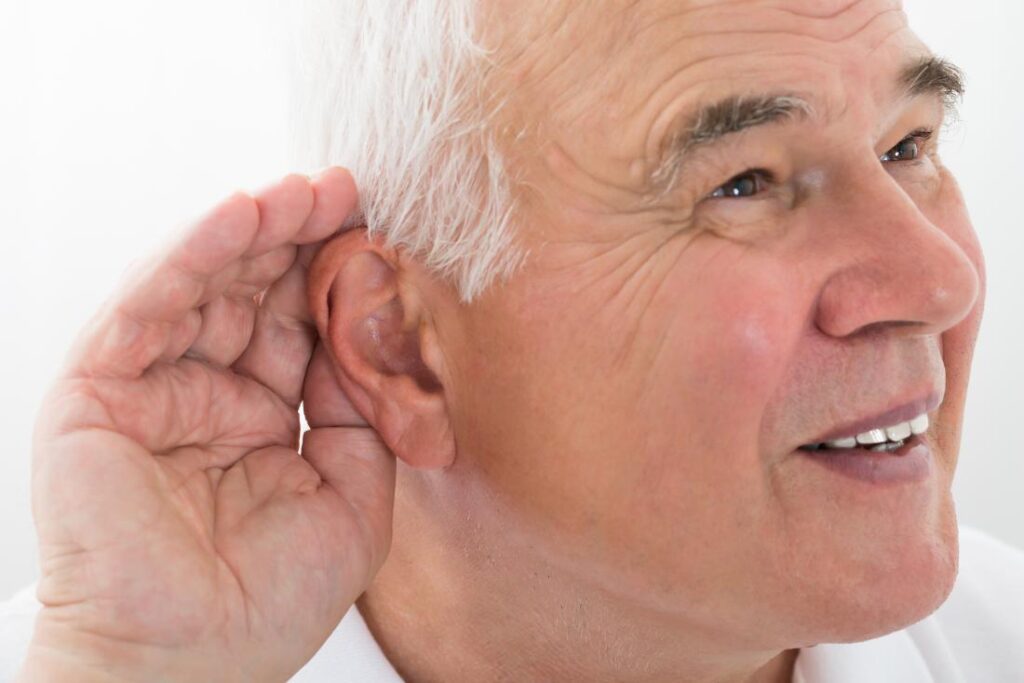
Hearing loss is a common condition that affects millions of people worldwide. It can have a significant impact on an individual’s quality of life, making it crucial to understand its causes, symptoms, and available treatments. In this article, we will delve into the complexities of hearing loss, shedding light on its underlying factors and exploring effective solutions to enhance hearing abilities. Whether you or a loved one are experiencing hearing difficulties, this guide aims to provide valuable insights to help you navigate this condition and make informed decisions for better hearing health.
What Causes Hearing Loss?
Hearing loss can be caused by various factors, both external and internal. Understanding these causes is essential in determining appropriate treatment options. Let’s explore the most common culprits:
- Aging: Age-related hearing loss, known as presbycusis, is one of the primary causes of hearing impairment. As we age, the delicate structures within our ears undergo natural wear and tear, leading to a gradual decline in hearing abilities.
- Noise Exposure: Prolonged exposure to loud noises, such as machinery, concerts, or firearms, can damage the sensitive hair cells in the inner ear. This noise-induced hearing loss (NIHL) is preventable by using protective measures like earplugs or earmuffs.
- Genetics: In some cases, hearing loss can be hereditary, passed down through generations. Genetic factors can make certain individuals more susceptible to hearing impairments.
- Ototoxic Medications: Certain medications, such as certain antibiotics, chemotherapy drugs, and high doses of aspirin, have the potential to cause hearing loss as a side effect. It is crucial to discuss potential ototoxicity with your healthcare provider.
- Infections and Diseases: Infections like otitis media, meningitis, or autoimmune diseases like Ménière’s disease can damage the structures involved in hearing, leading to temporary or permanent hearing loss.
- Earwax Buildup: Excessive earwax accumulation can obstruct the ear canal, resulting in a temporary reduction in hearing abilities. Cleaning the ears should be done carefully to avoid further complications.
What Are the Symptoms of Hearing Loss?
Identifying the symptoms of hearing loss is crucial for early intervention and effective treatment. Here are some common signs to look out for:
- Difficulty Understanding Speech: Individuals with hearing loss often struggle to comprehend conversations, especially in noisy environments. They may ask others to repeat themselves frequently.
- Muffled Sounds: Sounds may appear muffled or unclear, making it challenging to differentiate between certain words or tones.
- Withdrawal from Social Situations: People with hearing loss may start avoiding social gatherings or conversations, feeling embarrassed or frustrated by their inability to fully participate.
- Tinnitus: Tinnitus refers to the perception of ringing, buzzing, or hissing sounds in the ears. It can coexist with hearing loss or occur independently.
- Increased Volume: If you find yourself frequently increasing the volume on your electronic devices or television, it could be a sign of hearing loss.
- Trouble with Phone Conversations: Understanding speech over the phone may become increasingly difficult, leading to communication challenges.
- Misinterpretation: Individuals with hearing loss might misinterpret or misunderstand what others are saying, leading to confusion or inappropriate responses.
How Can Hearing Loss be Treated?
The treatment options for hearing loss depend on the severity and underlying causes. Here are some common approaches:
- Hearing Aids: Hearing aids are small electronic devices worn behind or inside the ear and amplify sounds for individuals with hearing loss. They come in various styles and technology levels to cater to different needs.
- Cochlear Implants: Cochlear implants are surgically implanted devices that directly stimulate the auditory nerve, bypassing the damaged inner ear. They are suitable for individuals with severe to profound hearing loss.
- Assistive Listening Devices (ALDs): ALDs include devices like captioned telephones, personal amplifiers, and FM systems that help individuals with hearing loss hear more clearly in specific situations, such as watching TV or participating in group conversations.
- Medications and Surgery: In some cases, medication or surgical interventions may be necessary to treat underlying conditions causing hearing loss, such as infections, tumors, or structural abnormalities.
- Communication Strategies and Rehabilitation: Learning effective communication strategies, such as lip-reading or sign language, can significantly improve communication for individuals with hearing loss. Speech therapy and auditory training programs can also enhance listening skills.
- Noise Protection: Preventing further damage to the ears is crucial for individuals with hearing loss. Using ear protection, such as earplugs or earmuffs, in loud environments can help preserve remaining hearing abilities.
- Lifestyle Adjustments: Making certain lifestyle adjustments can contribute to better hearing health. These include avoiding exposure to loud noises, maintaining overall health, managing stress levels, and adopting a healthy diet rich in essential nutrients.
Frequently Asked Questions (FAQs)
- Q: Can hearing loss be prevented? A: While some causes of hearing loss are preventable, such as noise-induced hearing loss, others may be inevitable due to factors like genetics or aging. However, taking preventive measures, such as using ear protection in noisy environments, can minimize the risk.
- Q: Can hearing loss be reversed? A: The possibility of reversing hearing loss depends on its underlying cause. In some cases, such as earwax buildup or certain infections, hearing can be restored with appropriate treatment. However, most types of hearing loss are permanent and require management strategies to improve communication abilities.
- Q: When should I see a doctor for hearing loss? A: If you experience any signs of hearing loss, it is recommended to consult with a healthcare professional specializing in audiology. They can assess your hearing abilities, determine the cause, and suggest appropriate treatment options.
- Q: Are there support groups for individuals with hearing loss? A: Yes, there are numerous support groups and organizations dedicated to providing resources, information, and emotional support to individuals with hearing loss and their families. Joining these groups can help you connect with others facing similar challenges and gain valuable insights.
Conclusion
Understanding hearing loss is crucial for promoting better hearing health and enhancing overall quality of life. By recognizing the causes, symptoms, and available treatment options, individuals with hearing loss can take proactive steps towards better communication and improved well-being. Whether it’s through the use of hearing aids, assistive listening devices, or other interventions, technology and support systems are available to help individuals overcome the challenges associated with hearing loss. Remember to prioritize your hearing health, seek professional guidance when needed, and embrace strategies that empower you to stay connected and engaged in the world of sound.


